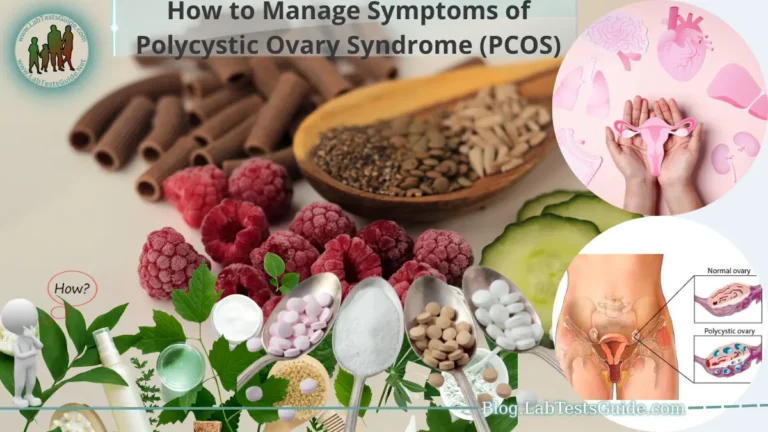The introduction highlights the paramount importance of regular check-ups and preventative screenings in maintaining and promoting overall health and well-being. These proactive measures play a crucial role in early detection and diagnosis of health issues, enabling timely intervention and improved treatment outcomes. By identifying risk factors and potential health concerns early on, individuals can take necessary steps to prevent the development of serious diseases and minimize healthcare costs in the long run. Moreover, regular check-ups provide peace of mind, reduce anxiety, and encourage healthy lifestyle choices, fostering a better quality of life.

This comprehensive guide will delve into the numerous benefits of embracing regular health check-ups and preventative screenings, illustrating how these practices contribute to a healthier and happier life.
What is Importance of Preventative Screenings?
Preventative screenings are essential for several reasons.
- Early Detection and Intervention: Preventative screenings can detect health conditions in their early stages, which allows for timely intervention and treatment. Early detection often leads to more effective treatment options, potentially preventing the progression of a disease to a more advanced and difficult-to-treat stage.
- Prevention of Serious Conditions: Some diseases, like certain types of cancer and cardiovascular diseases, may not show symptoms until they have reached an advanced stage. Regular screenings can identify risk factors and early signs, enabling healthcare providers to implement preventive measures and reduce the risk of developing serious illnesses.
- Improved Health Outcomes: When health conditions are identified early, treatment can be initiated promptly, leading to better health outcomes and increased chances of successful recovery. This not only improves the patient’s quality of life but also reduces the burden on healthcare systems and resources.
- Cost-Effectiveness: Preventative screenings are generally more cost-effective than treating advanced diseases. By detecting and addressing health issues early, individuals can avoid expensive medical treatments and hospitalizations, saving both personal and healthcare system costs.
- Tailored Healthcare: Screenings allow healthcare providers to assess an individual’s specific health risks and needs, enabling them to provide personalized healthcare recommendations and interventions. This approach promotes targeted preventive strategies based on an individual’s unique health profile.
- Public Health Impact: Widespread adoption of preventative screenings can lead to significant improvements in public health outcomes. By identifying and addressing health concerns at a population level, preventative screenings contribute to disease prevention and control, leading to healthier communities.
- Peace of Mind: Regular screenings can provide individuals with peace of mind, knowing that their health is being actively monitored. This can help alleviate anxiety and empower individuals to take control of their health proactively.
- Encouraging Healthy Behaviors: The process of undergoing preventative screenings often encourages individuals to adopt healthier lifestyle choices. Knowing the risks and potential consequences of certain health behaviors can motivate people to make positive changes to improve their well-being.
How to early Detection and Diagnosis?
Here are some essential steps to facilitate early detection and diagnosis.
- Regular Health Check-ups: Schedule routine health check-ups with your primary care physician or healthcare provider. These check-ups should include a comprehensive evaluation of your overall health, including physical examinations, vital sign assessments, and discussions about your medical history and any concerning symptoms.
- Know Your Body: Be attentive to any changes or unusual symptoms you experience. Take note of any persistent or recurring symptoms, such as pain, fatigue, unexplained weight loss, or changes in bodily functions. Being aware of changes in your body can prompt you to seek medical attention promptly.
- Screenings and Tests: Follow recommended guidelines for preventative screenings based on your age, gender, and risk factors. These screenings may include blood pressure checks, cholesterol tests, mammograms, colonoscopies, Pap smears, prostate exams, and more. Regular screenings can detect potential health issues before symptoms appear.
- Pay Attention to Risk Factors: Understand your personal risk factors for certain diseases, such as family history, lifestyle choices, and environmental exposures. Knowing these risk factors can help you and your healthcare provider make informed decisions about screenings and preventive measures.
- Engage in Health Discussions: Be open and honest with your healthcare provider about your health concerns, lifestyle habits, and any family history of diseases. Effective communication can aid in early identification of potential health issues and appropriate diagnostic tests.
- Monitor Chronic Conditions: If you have any chronic medical conditions, follow your healthcare provider’s recommended monitoring and treatment plan. Regularly manage chronic diseases such as diabetes, hypertension, or asthma to prevent complications and detect any changes in your condition.
- Stay Informed: Keep yourself updated about health-related news and developments. Knowledge about new screening methods, diagnostic technologies, and treatment options can empower you to make informed decisions about your health.
- Trust Your Instincts: If you feel something is wrong or not well with your health, don’t hesitate to seek medical advice. Your intuition and understanding of your body can be valuable in identifying potential health issues early on.
- Seek Second Opinions: If you receive uncertain or ambiguous medical results or diagnoses, consider seeking a second opinion from another qualified healthcare professional. A fresh perspective can provide additional insights and clarity.
- Adopt Healthy Lifestyle Practices: Engage in regular physical activity, maintain a balanced diet, get sufficient sleep, manage stress, and avoid harmful habits such as smoking and excessive alcohol consumption. A healthy lifestyle can significantly contribute to early detection and prevention of certain health issues.
Prevention of Serious Health Conditions:
Here are some key strategies for the prevention of serious health conditions.
- Healthy Diet: Adopt a balanced and nutritious diet that includes a variety of fruits, vegetables, whole grains, lean proteins, and healthy fats. Limit the intake of processed foods, sugary beverages, and high-calorie snacks. A healthy diet can help prevent obesity, heart disease, diabetes, and certain types of cancer.
- Regular Exercise: Engage in regular physical activity, such as walking, jogging, cycling, swimming, or participating in sports. Aim for at least 150 minutes of moderate-intensity exercise or 75 minutes of vigorous-intensity exercise per week. Regular exercise reduces the risk of cardiovascular diseases, obesity, and osteoporosis, among other conditions.
- Avoid Tobacco and Limit Alcohol: Avoid smoking and exposure to secondhand smoke, as smoking is a leading cause of preventable diseases like lung cancer, heart disease, and respiratory conditions. If you consume alcohol, do so in moderation, as excessive alcohol intake can lead to liver disease, certain cancers, and other health issues.
- Maintain a Healthy Weight: Achieve and maintain a healthy body weight based on your age, height, and body composition. Excess weight, especially around the waist, is associated with an increased risk of heart disease, diabetes, and certain cancers.
- Regular Preventative Screenings: Follow recommended guidelines for age-appropriate preventative screenings, such as blood pressure checks, cholesterol tests, mammograms, Pap smears, colonoscopies, and prostate exams. These screenings can help detect potential health issues at an early stage and allow for timely intervention.
- Immunizations and Vaccinations: Stay up-to-date with vaccinations, including those for influenza, pneumonia, hepatitis, human papillomavirus (HPV), and other preventable diseases. Vaccinations can protect you and others from serious infections and their complications.
- Manage Stress: Practice stress-reduction techniques like meditation, yoga, deep breathing exercises, or spending time in nature. Chronic stress can contribute to various health conditions, including heart disease and mental health disorders.
- Sleep Well: Aim for 7-9 hours of quality sleep each night. Sufficient and restful sleep is essential for physical and mental health, and it supports immune function and overall well-being.
- Regular Medical Check-ups: Schedule regular health check-ups with your healthcare provider. Regular medical assessments can help identify potential risk factors and health issues early on, allowing for timely intervention and preventive measures.
- Safety Measures: Take safety precautions to prevent accidents and injuries, such as wearing seat belts, using helmets, and following safety guidelines at home and work.
Cost-Effectiveness:
Here are some aspects of cost-effectiveness in healthcare.
- Preventive Measures: Emphasizing preventive healthcare measures can be highly cost-effective in the long run. Preventing illnesses through vaccinations, regular screenings, and promoting healthy lifestyle choices can reduce the need for expensive treatments and hospitalizations associated with advanced diseases.
- Early Detection and Intervention: Detecting health issues at an early stage through regular check-ups and screenings can lead to less costly and more manageable treatments. Early intervention may prevent the progression of diseases, avoiding the need for costly procedures and long-term healthcare expenses.
- Reducing Hospital Readmissions: Implementing programs to reduce hospital readmissions can be cost-effective. By providing effective post-discharge care and monitoring, the likelihood of patients needing to return to the hospital for the same condition can be minimized, reducing overall healthcare costs.
- Chronic Disease Management: Effective management of chronic diseases can result in improved health outcomes and reduced healthcare costs. Properly managing conditions like diabetes, hypertension, and asthma can prevent complications and hospitalizations.
- Comparative Effectiveness Research: Conducting research to compare different treatment options for specific conditions can help identify the most cost-effective interventions. This enables healthcare providers to make informed decisions about treatment plans that offer the best outcomes for the investment.
- Value-Based Care: Shifting towards a value-based care model, which focuses on achieving better health outcomes for patients, can lead to cost savings. Providers are incentivized to deliver high-quality care while reducing unnecessary services and treatments.
- Health Technology Assessment: Assessing the cost-effectiveness of new medical technologies and treatments before widespread adoption can help ensure that resources are allocated to interventions with proven benefits and value for money.
- Efficient Healthcare Delivery: Improving the efficiency of healthcare delivery can lead to cost savings. Reducing administrative overhead, streamlining processes, and using technology effectively can optimize resources and reduce expenses.
- Preventing Medication Non-Adherence: Encouraging medication adherence among patients can prevent costly hospitalizations and complications associated with poorly managed chronic conditions.
- Public Health Interventions: Investing in public health initiatives, such as disease prevention campaigns and health education, can result in substantial cost savings by preventing the spread of infectious diseases and promoting healthier communities.
Peace of Mind and Reduced Anxiety:
- Early Detection and Reassurance: Undergoing regular check-ups and preventative screenings allows individuals to detect potential health issues early on or confirm that they are in good health. This early detection provides reassurance, knowing that any problems can be addressed promptly, leading to a sense of security and peace of mind.
- Managing Health Concerns: Addressing health concerns proactively through check-ups and screenings can help individuals gain a better understanding of their health status. By having a clear picture of their overall health, individuals can take appropriate actions and follow medical advice, which can alleviate anxiety about the unknown or uncertain health conditions.
- Empowerment and Control: Engaging in preventative healthcare empowers individuals to take control of their health. By actively participating in their well-being and health decisions, individuals feel more in control of their lives, reducing feelings of helplessness or anxiety related to health matters.
- Reducing Health-related Anxiety: Regular health check-ups can ease health-related anxiety that some individuals may experience due to fear of potential health problems. By knowing that they are consistently monitoring their health, individuals can reduce worry and focus on other aspects of their lives.
- Psychological Benefits of Preventative Measures: Embracing preventative screenings and check-ups demonstrates a commitment to personal health and well-being. The act of taking proactive measures can boost self-esteem and provide a sense of achievement, contributing to positive mental health.
- Coping with Health Anxiety: For individuals who may be prone to health anxiety or hypochondria, regular check-ups and preventative screenings can offer a structured and balanced approach to monitoring health. This can prevent excessive worry and unnecessary medical tests due to excessive health-related fears.
- Building Trust with Healthcare Providers: Establishing a relationship with a trusted healthcare provider through regular check-ups fosters confidence in the healthcare system. Knowing they have a reliable source of medical guidance and support can alleviate anxiety about health issues.
- Supporting Mental Health Awareness: Regular health check-ups can also serve as an opportunity for healthcare providers to address mental health concerns and offer appropriate support and resources, further enhancing mental well-being.
Promoting Healthy Lifestyle Choices:
- Health Education: Raise awareness about the importance of healthy living through health education programs. Provide information on nutrition, physical activity, stress management, sleep hygiene, and the benefits of adopting healthy habits.
- Personalized Counseling: Offer personalized counseling sessions with healthcare professionals to assess individuals’ health status, identify risk factors, and create tailored lifestyle plans. Personalized advice and guidance can be more effective in motivating individuals to make positive changes.
- Community Programs: Organize community-based health and wellness programs, workshops, and events to engage individuals and families in adopting healthier behaviors. These programs can focus on various aspects of health, such as cooking classes, fitness activities, and mental health workshops.
- Workplace Wellness Initiatives: Encourage employers to implement workplace wellness programs that promote healthy living among employees. These initiatives can include fitness challenges, stress management workshops, and healthy eating options in the workplace.
- Public Health Campaigns: Launch public health campaigns that focus on specific health issues, such as smoking cessation, reducing sugary drink consumption, or increasing physical activity. Use various media channels to reach a broader audience and raise awareness.
- Role Modeling: Encourage healthcare providers, educators, and community leaders to serve as role models by adopting healthy lifestyle choices themselves. People are more likely to follow suit when they see others practicing what they preach.
- Incorporating Physical Activity: Advocate for the inclusion of physical activity in daily routines. Encourage walking or cycling to work, taking breaks for stretching and moving during the day, and engaging in recreational activities that promote active lifestyles.
- Healthy Eating Initiatives: Promote the consumption of nutritious foods by offering healthier options in schools, workplaces, and community spaces. Provide information on balanced diets and portion control to help individuals make informed food choices.
- Stress Management: Highlight the importance of managing stress through techniques like meditation, mindfulness, yoga, and relaxation exercises. Offer resources and workshops to help individuals cope with stress effectively.
- Supportive Environments: Create environments that facilitate healthy choices, such as building parks and recreational spaces, promoting safe walking and cycling paths, and restricting the availability of unhealthy food and beverages in public places.
- Long-Term Approach: Emphasize that healthy lifestyle choices are a lifelong commitment and that gradual changes are more sustainable than quick fixes. Encourage individuals to set realistic goals and celebrate their progress.
- Collaboration and Partnerships: Work collaboratively with community organizations, schools, businesses, and local government to implement comprehensive and integrated approaches to promoting healthy lifestyles.
Enhancing Quality of Life:
Here are some ways in which healthcare.
- Access to Healthcare Services: Ensure that individuals have access to affordable and comprehensive healthcare services. This includes regular check-ups, preventative screenings, and timely medical interventions when needed, fostering early detection and management of health issues.
- Chronic Disease Management: Support individuals with chronic conditions in effectively managing their health through personalized care plans, education, and resources. Proper management can help prevent complications and enhance day-to-day functioning and well-being.
- Pain Management: Provide effective pain management for individuals experiencing chronic pain, allowing them to enjoy a higher quality of life with reduced physical discomfort.
- Mental Health Support: Address mental health needs by offering counseling, therapy, and access to mental health professionals. Taking care of mental health contributes significantly to overall well-being and quality of life.
- Social Support: Promote social connections and a sense of belonging in the community. Social support networks can help reduce feelings of isolation and enhance emotional well-being.
- Healthy Lifestyle Promotion: Encourage and support healthy lifestyle choices, such as regular physical activity, a balanced diet, and stress management techniques. These practices contribute to improved physical and mental health.
- Palliative Care and End-of-Life Support: Provide palliative care services and end-of-life support for individuals facing serious illnesses. These services focus on improving the quality of life, managing symptoms, and providing emotional support for both patients and their families.
- Cultural Sensitivity: Acknowledge and respect individual cultural backgrounds and preferences in healthcare delivery. A culturally sensitive approach enhances patient satisfaction and ensures that care aligns with personal values and beliefs.
- Independence and Mobility: Promote independence and mobility for older adults and individuals with disabilities through assistive devices, rehabilitation, and accessibility measures. Enhancing independence fosters a sense of autonomy and dignity.
- Preventing Falls and Injuries: Implement measures to prevent falls and injuries, especially in older adults, to maintain functional abilities and reduce the risk of complications.
- Promoting Positive Environment: Create environments that promote health and well-being, such as green spaces, safe neighborhoods, and clean air. A positive environment can positively influence mental health and overall life satisfaction.
- Empowerment and Education: Empower individuals to take an active role in managing their health through education and access to health information. Informed decision-making can lead to better health outcomes and increased satisfaction with healthcare choices.
Common Preventative Screenings and Check-ups:
Here are some of the most common preventative screenings and check-ups.
- Blood Pressure Check: Regular blood pressure measurements help monitor cardiovascular health and detect hypertension, a risk factor for heart disease and stroke.
- Cholesterol Test: A lipid profile measures cholesterol levels, including LDL (low-density lipoprotein) and HDL (high-density lipoprotein), to assess cardiovascular risk.
- Blood Glucose Testing: Screening for diabetes or prediabetes involves measuring fasting blood glucose levels or conducting an oral glucose tolerance test.
Cancer Screenings:
- Mammogram: For breast cancer screening in women, typically recommended starting at age 40-50 (or earlier, based on family history).
- Pap Smear: For cervical cancer screening in women, generally recommended every three years for those aged 21 to 65 (or as per specific guidelines).
- Colonoscopy: For colorectal cancer screening, typically recommended starting at age 50 (or earlier with increased risk factors).
- Bone Density Test: This screening, known as Dual-energy X-ray Absorptiometry (DXA), helps detect osteoporosis and assess bone health, especially in postmenopausal women and older adults.
- Immunizations and Vaccinations: Regular vaccinations, such as flu shots, Tdap, MMR, and HPV vaccines, protect against infectious diseases.
- Prostate-Specific Antigen (PSA) Test: This test screens for prostate cancer in men, usually starting at age 50 (or earlier for high-risk individuals).
- Eye Exam: Regular eye examinations are important for detecting vision problems and eye diseases like glaucoma and cataracts.
- Skin Cancer Screening: A skin examination by a healthcare provider helps detect early signs of skin cancer.
- Dental Check-up: Regular dental visits help maintain oral health and detect dental issues early.
- Body Mass Index (BMI) Assessment: This calculation determines whether an individual’s weight is within a healthy range relative to their height.
- Blood Tests: Routine blood tests, including a complete blood count (CBC) and metabolic panel, can help assess overall health and detect certain medical conditions.
- Well-Woman Exam: A comprehensive check-up for women that includes breast and pelvic exams, discussion of reproductive health, and contraceptive counseling.
- Well-Child Check-ups: Regular pediatric visits monitor a child’s growth, development, and vaccination schedule.
Guidelines for Regular Check-ups and Screenings:
here are some general guidelines for regular check-ups and screenings for different age groups.
Infants and Children:
- Regular well-child check-ups are recommended from birth through adolescence. These visits monitor growth, development, and vaccinations.
- Vision and hearing screenings are typically performed during early childhood.
Adolescents and Young Adults:
- Annual check-ups are recommended for overall health assessment and preventive care.
- Immunizations, including catch-up vaccinations, should be reviewed and updated as needed.
- Vision and hearing screenings may be continued or performed as needed.
- Dental check-ups should occur every six months.
Adults (Ages 18-64):
- Blood pressure check: At least once every two years, more frequently if elevated.
- Cholesterol screening: Every four to six years, more frequently if at higher risk of cardiovascular disease.
- Blood glucose testing: Every three years, more frequently if at risk of diabetes.
- BMI assessment and counseling: At least annually to monitor weight and discuss healthy lifestyle habits.
- Cancer screenings (vary based on individual risk factors):
- Mammogram for breast cancer (typically starting at age 40-50, earlier with increased risk).
- Pap smear for cervical cancer (every three years for those aged 21 to 65 or as per guidelines).
- Colonoscopy for colorectal cancer (starting at age 50 or earlier based on risk factors).
- Immunizations: Stay up-to-date with vaccinations, including flu shots, Tdap, HPV, etc.
- Vision and hearing screenings may be continued or performed as needed.
- Dental check-ups should occur every six months.
Older Adults (Ages 65 and above):
- Regular annual check-ups are recommended.
- Continue screenings as recommended for adults, with a focus on early detection and management of chronic conditions.
- Bone density test (DXA) for osteoporosis may be performed for postmenopausal women and older adults.
- Additional screenings may include fall risk assessment and cognitive screening.
Pregnant Women:
- Regular prenatal check-ups are essential for monitoring maternal and fetal health during pregnancy.
- Prenatal screenings, such as ultrasound and blood tests, are performed at specific stages of pregnancy to assess fetal development and screen for certain conditions.
Overcoming Barriers to Regular Check-ups:
Here are some strategies to address common barriers and encourage regular check-ups.
- Health Education and Awareness: Raise awareness about the importance of regular check-ups and preventative screenings through health campaigns, community outreach programs, and informative materials. Educate individuals about the benefits of early detection and preventive care.
- Access to Healthcare: Improve access to healthcare services by addressing factors like location, transportation, and financial barriers. Establish community health centers, mobile clinics, or telemedicine services to reach underserved populations.
- Affordable Healthcare: Advocate for affordable healthcare options and health insurance coverage to make check-ups and screenings more accessible to individuals of all income levels.
- Outreach and Reminders: Implement reminder systems, such as phone calls, text messages, or emails, to notify individuals about upcoming check-ups and screenings. This can help people stay on top of their healthcare schedule.
- Flexible Scheduling: Offer flexible appointment scheduling options to accommodate busy lifestyles and work schedules. Evening or weekend appointments can make it easier for individuals to find time for check-ups.
- Addressing Fear and Anxiety: Address and alleviate fears and anxieties associated with medical visits through patient education and provider communication. Assure individuals that check-ups are essential for maintaining good health and preventing potential health issues.
- Culturally Competent Care: Provide culturally competent healthcare that respects individual beliefs, traditions, and practices. This helps individuals feel more comfortable seeking healthcare and participating in preventive screenings.
- Language Access: Ensure language access by providing interpretation services for individuals with limited English proficiency. Clear communication can enhance understanding and engagement in healthcare services.
- Peer Support and Community Engagement: Encourage peer support and community engagement in health initiatives. This can create a supportive environment that motivates individuals to prioritize their health.
- Incentives and Rewards: Consider offering incentives or rewards for individuals who regularly attend check-ups and screenings. Small incentives like gift cards or discounts may encourage individuals to prioritize their health.
- Collaboration with Employers: Collaborate with employers to promote workplace wellness programs that encourage regular check-ups and preventive screenings for their employees.
- School-Based Initiatives: Implement school-based health programs that educate students and parents about the importance of regular check-ups and screenings. These initiatives can reach families and foster a health-conscious community.
- Telehealth Services: Leverage telehealth services to provide virtual consultations and check-ups, especially in rural or remote areas where access to in-person healthcare might be limited.
FAQs:
What are the benefits of regular check-ups and preventative screenings?
Regular check-ups and preventative screenings offer several benefits, including early detection and intervention for potential health issues, prevention of serious conditions, cost-effectiveness by avoiding expensive treatments, peace of mind and reduced anxiety, promotion of healthy lifestyle choices, and overall enhancement of quality of life.
How often should I have a health check-up?
The frequency of health check-ups can vary based on age, gender, and individual health status. As a general guideline, adults should have an annual health check-up to monitor their overall health and well-being. However, specific recommendations should be discussed with your healthcare provider based on your unique health needs.
What age should I start getting preventative screenings?
The age to start getting preventative screenings varies depending on the type of screening and individual risk factors. Some common screenings, like blood pressure checks and cholesterol tests, can begin as early as childhood. Others, like mammograms and colonoscopies, are typically recommended for adults at certain ages (e.g., starting at 40-50 years old). It’s important to consult with a healthcare provider to determine the appropriate age to start screenings based on your health history and risk factors.
How can I overcome fear and anxiety about medical check-ups and screenings?
Overcoming fear and anxiety about medical check-ups and screenings involves open communication with healthcare providers about your concerns. Express your feelings and fears so that they can address them and provide reassurance. Seeking support from friends or family members during medical visits can also help reduce anxiety. Gradual exposure to medical settings and positive experiences can gradually alleviate fear over time.
Are preventative screenings covered by health insurance?
Many preventative screenings are covered by health insurance plans, particularly as mandated by law in some regions. Preventative services are often provided at no additional cost to the patient. However, coverage may vary based on the insurance plan and specific screenings. It’s essential to review your insurance policy and consult with your insurer to understand what preventative services are covered.
Can I skip regular check-ups if I feel healthy?
Even if you feel healthy, regular check-ups are essential for preventive care. Some health conditions may not show symptoms in their early stages, and regular check-ups help detect potential issues early on. Preventative screenings can also identify risk factors and help maintain your overall well-being, so it’s important not to skip regular check-ups.
How can I find a healthcare provider for regular check-ups and screenings?
Finding a healthcare provider involves researching local clinics, hospitals, or healthcare facilities. You can seek recommendations from friends, family, or colleagues, and check online reviews. Many healthcare providers have websites with information about their services and specialties. Consider factors such as location, accepted insurance plans, and the provider’s expertise when choosing the right healthcare professional for your needs.
Can I get preventative screenings through telehealth services?
Yes, some preventative screenings and check-ups can be conducted through telehealth services. Telehealth offers virtual consultations with healthcare providers, and certain screenings can be done remotely or facilitated through telemedicine platforms. However, some screenings may require in-person visits or specific equipment not available through telehealth. It’s best to check with your healthcare provider about the feasibility of telehealth screenings for your specific health needs.
Can I do preventative screenings at home?
Some basic health screenings, like blood pressure monitoring, blood glucose testing, and home pregnancy tests, can be done at home using specific kits or devices. However, more complex screenings, such as mammograms and colonoscopies, typically require professional facilities. Always consult with your healthcare provider before attempting any health screenings at home to ensure accuracy and appropriate interpretation of results.
Conclusion:
In conclusion, embracing regular check-ups and preventative screenings is a cornerstone of proactive healthcare that leads to numerous benefits for individuals and society as a whole. By prioritizing early detection, intervention, and preventive measures, these practices play a crucial role in maintaining optimal health, preventing serious conditions, and reducing healthcare costs. Regular health check-ups provide peace of mind, alleviate anxiety, and empower individuals to take control of their well-being. Through a focus on promoting healthy lifestyle choices and access to quality healthcare, we can enhance the overall quality of life, foster a healthier population, and create a more sustainable and effective healthcare system for the future.






